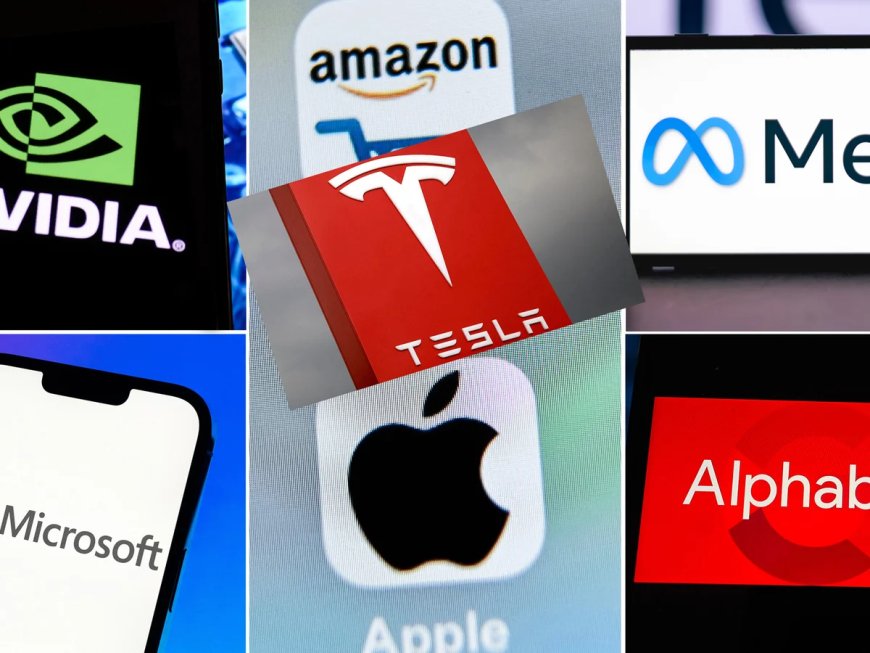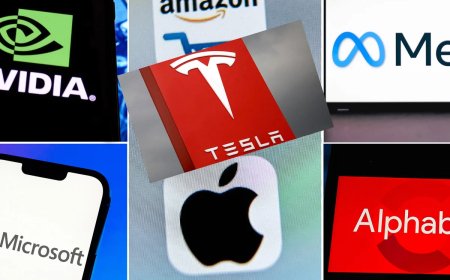The AI Monopoly Problem: Why Five Companies Control the Future of Intelligence

Five companies control most of the world's AI development: Google, Microsoft, Meta, Amazon, and OpenAI. Between them, they own the data, computing power, talent, and infrastructure needed to build advanced AI systems. This concentration of power could determine who prospers in the AI economy for decades to come.
The Three Moats of AI Dominance
Computing Power: Training advanced AI models requires thousands of specialized chips costing $25,000-$40,000 each, plus massive electricity consumption. Only the largest tech companies can afford the $1-10 billion needed to train cutting-edge AI systems.
Data Monopolies: AI systems learn from data, and the best AI requires the most data. Google has search queries, YouTube videos, and Gmail content. Meta has social media interactions. Amazon has e-commerce behavior. This data can't be replicated or purchased.
Talent Concentration: There are only a few thousand people worldwide capable of building advanced AI systems. Tech giants pay them $500,000-$2 million annually, making it nearly impossible for startups or smaller companies to compete for top AI talent.
The Platform Control Strategy
These companies aren't just building AI - they're building the platforms that everyone else must use to access AI. Microsoft embeds AI into Office and Azure. Google integrates AI into Search and Gmail. Amazon provides AI services through AWS.
This creates a dependency relationship where other businesses must pay these platforms to access AI capabilities, generating enormous recurring revenue streams and making customers dependent on their ecosystems.
The Innovation Strangulation Effect
When a few companies control AI development, they can slow innovation to protect existing business models. Google might develop AI search capabilities slowly to preserve advertising revenue. Microsoft might limit AI features to force Office subscription upgrades.
Meanwhile, potential competitors are strangled in the cradle. Promising AI startups are either acquired by tech giants (eliminating competition) or find it impossible to compete without access to the data and computing power that only large companies possess.
The Economic Ripple Effects
AI monopolization affects every industry. Retailers depend on Amazon's AI for logistics. Manufacturers use Microsoft's AI for operations. Media companies rely on Google's AI for content discovery. No industry can remain independent of these platforms.
This dependency means that AI productivity gains flow primarily to the platform owners rather than the businesses that implement AI or the workers who use it. The AI revolution enriches a few companies while making everyone else economically dependent on them.
The Regulatory Challenge
Traditional antitrust law focuses on consumer prices and market share, but AI markets don't fit these models. Google gives away AI search for "free" while monetizing user data. Meta provides AI tools at low cost while building market dependency.
Meanwhile, the complexity of AI makes it difficult for regulators to understand when companies are using their dominance to stifle competition. Technical decisions about AI development can have massive competitive implications that aren't visible to outside observers.
International Competition Concerns
AI monopolization isn't just an economic issue - it's a national security concern. If a few companies control AI development, they effectively control economic and military advantages in the global competition with China and other nations.
Other countries are developing their own AI champions (Baidu, Alibaba, Tencent) to avoid dependence on American AI platforms. This could lead to a fragmented global AI ecosystem where different regions use incompatible AI systems.
The Innovation Paradox
Large companies with AI monopolies can invest more in research and development than fragmented competitors. Google's AI research budget exceeds the entire R&D spending of most countries. This suggests that some concentration might accelerate AI progress.
But monopolies also reduce incentives to innovate beyond what's needed to maintain market position. Without competitive pressure, dominant companies might under-invest in breakthrough research or focus on incremental improvements that protect existing revenue streams.
Potential Solutions
Data portability requirements: Force platforms to allow users to export their data and use it with competing AI services, reducing data moat advantages.
Infrastructure sharing mandates: Require large AI companies to provide smaller competitors with access to computing resources at cost, similar to how telecom companies must share network infrastructure.
Public AI development: Government-funded research institutions could develop open-source AI models that compete with proprietary systems, ensuring public access to AI capabilities.
The Stakes for Everyone
AI will determine economic winners and losers for the next several decades. If a few companies control AI development, they'll effectively control economic opportunity for everyone else. Workers, entrepreneurs, and entire industries could become permanently dependent on AI platforms they don't control.
The time to address AI monopolization is now, before these companies' advantages become insurmountable and their platforms become indispensable to economic life.
What's Your Reaction?
 Like
0
Like
0
 Dislike
0
Dislike
0
 Love
0
Love
0
 Funny
0
Funny
0
 Angry
0
Angry
0
 Sad
0
Sad
0
 Wow
0
Wow
0












































